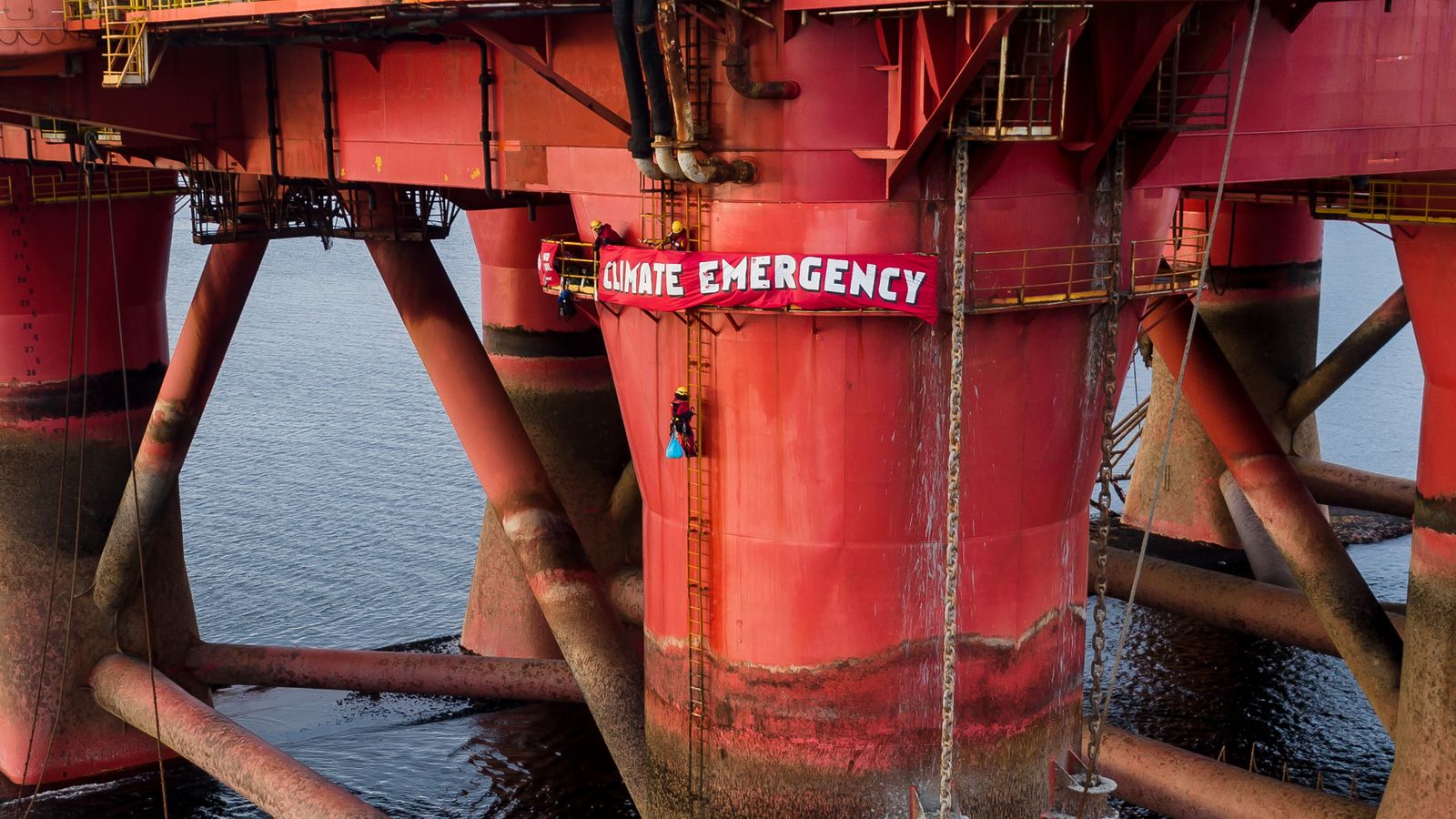Environment campaign group, Greenpeace, has lost a legal bid to have the UK government’s decision to allow BP to drill for oil at a field in the North Sea overturned.
It took legal action at the Court of Session, the highest civil court in Scotland, to call for BP’s permit to drill the Vorlich field in 2018 to be removed.
Following a two-day hearing last month, the group’s claims have been rejected.
The oil field cost £230m to develop and has been operating for around nine months, and the cost of ceasing production would have been around £5m a month.
Greenpeace argued a “myriad of failures” during the public consultation meant it was deprived of the chance to comment on the application for consent and of a “clear, timely process for challenging the decisions”.
In a written statement, the Lord President, Lord Carloway, rejected these arguments saying they were “overwhelmingly technical and unconvincing”.
He added that BP’s application had “significant publicity” and Greenpeace, as a ” leading environment watchdog, ought to have been well aware of the legal mechanisms available in order to mount a challenge”.
Google launches new tools to help one billion people make ‘greener choices’ by 2022
Climate change is ‘huge threat to humanity’, physics Nobel Prize winner warns
Drones to carry post to remote island in Royal Mail trial to cut carbon emissions
The campaigners have argued when the application for drilling consent was first issued they would have wanted to make representations on a number of issues, including the “failure to assess climate change and the impact of greenhouse gas emissions”.
Please use Chrome browser for a more accessible video player
However, Lord Carloway said the consumption of oil and gas does not constitute “significant effects” of the project.
“At present, a shortage of oil and gas supplies is a matter of public concern,” he said.
“It is not maintained that the exploitation of the Vorlich field would increase, or even maintain, the current level of consumption.
“Unless it did so, it is difficult to argue that it would have any material effect on climate change; even if it is possible to arrive at a figure for its contribution by arithmetical calculation relative to the production of oil and gas overall”.
He added that the issue is “essentially a political and not a legal one”.
Greenpeace has said it intends to appeal against the ruling in the Supreme Court.
In 2019, Greenpeace activists occupied a BP oil rig in Scotland for more than 10 days in a climate emergency protest.
Greenpeace UK executive director, John Sauven, said: “The government is celebrating a win for the fossil fuel industry after its lawyers argued in court that emissions from burning oil extracted by BP are ‘not relevant’ when granting an oil permit.
“And now the prime minister is poised to sign off even more oil if he approves a new oil field at Cambo – against official guidance from climate experts.
“In just a few weeks’ time, Boris Johnson will be opening global climate talks where his actions, not his words, will be what counts.
“And right now his actions are covered in oil. We will not give up the fight for the climate”.
Watch the Daily Climate Show at 6.30pm Monday to Friday on Sky News, the Sky News website and app, on YouTube and Twitter.
The show investigates how global warming is changing our landscape and highlights solutions to the crisis






















